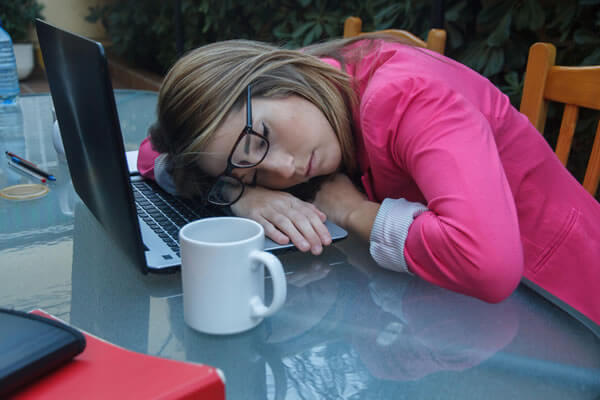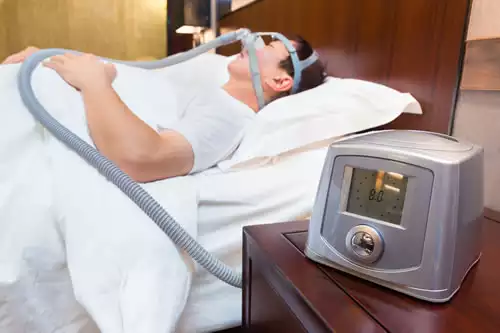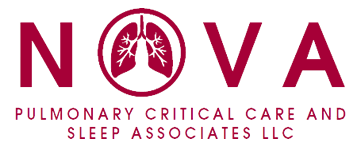What are Sleep Disorders?
Sleep disorders are a group of conditions that affect the quality, timing, and duration of sleep. They can disrupt a person’s normal sleep pattern and have negative effects on their physical health, mental well-being, and overall functioning.
NOVA Pulmonary Critical Care and Sleep Associates manage and treat a variety sleep conditions including sleep disorders:

Feel Better Today!
Cannot sleep? Do you suffer from insomnia? Insomnia involves difficulty falling asleep, staying asleep, or both. It can be caused by stress, anxiety, depression, medications, or underlying medical conditions. Contact NOVA Pulmonary Critical Care and Sleep Associates to set up an appointment with a sleep specialists.

Is your work suffering ?
Are you suffering from excessive sleep syndrome? Dozing at work? Cannot Concentrate? We can help you! Call NOVA Pulmonary Critical Care and Sleep Associates to set up an appointment with a sleep specialist.

Schedule an Appointment
Fill out our online form today to schedule your next appointment.
Treatment for Sleep Disorders
Treatment for sleep disorders depends on the specific type and underlying cause. It may include lifestyle changes, behavioral therapies, medications, or devices such as continuous positive airway pressure (CPAP) machines for sleep apnea. If you suspect you have a sleep disorder, it’s essential to consult with a healthcare professional for an accurate diagnosis and appropriate treatment.
Dr. Aditya Dubey
Dr. Aditya Dubey is a top Northern Virginia Pulmonologist and Sleep Specialist based out of Dulles, VA with inpatient and outpatient diagnosis & treatments. He currently lives in Northern Virginia with his wife and son. He enjoys traveling with his family and exploring new areas. Learn more about our Dr. Aditya Dubey.
Office Locations
Conveniently located near you in Loudoun and Fairfax VA
NOVA Pulmonary – Dulles
24430 Stone Springs Boulevard
Suite 200
Dulles, VA 20166
NOVA Pulmonary – Lansdowne
19415 Deerfield Avenue
Suite 301
Landsdowne, VA 20176
NOVA Pulmonary Critical Care and Sleep Associates Testimonials
The sleep specialists in the Fairfax office are very knowledgeable and courteous. I was having sleep problems and was looking for a sleep doctor near me. I am grateful I found NOVA Pulmonary Critical Care and Sleep Associates. Dr. Dubey patiently listened to my health problems and ordered some tests for me. After the diagnosis he explained the treatment to me in detail. I feel so much better now. I cannot thank him enough for helping me. I highly recommend Dr. Dubey, if you suffering from a sleep disorder ~ patient Fairfax.
I’ve been seeing Dr. Dubey for close to 3 years now for my sleep disorder treatment. The c-pap has greatly improved my quality of sleep. Scheduling an appointment with him is easy. The staff is courteous and helpful. My supplies are shipped to me on a subscription basis and tweaks to the amount of air to my c-pap is adjusted and discussed each visit. Dr. Dubey is very pleasant and easy to talk to. ~ Patient, Leesburg, VA
I visited Dr. Thomas in the Fairfax location as I wanted a consultation for my sleep disorder. Dr. Thomas at Nova Pulmonary is amongst the best Sleep Specialist I have come across. She is extremely thorough with her patients, very cordial and helpful. ~ Patient Fairfax
Suffering from insomnia or any sleep disorder can make you exhausted. I could not sleep at night and used to fall asleep in the office during meetings and my job was at risk. Dr. Dubey was recommended to me by a friend. Since I have started treatment from him, my life has changed completely. I have become more productive at work and do not feel lethargic all the time. I feel optimistic that I will regain my health very soon. ~ Patient Fairfax
I highly recommend NOVA Pulmonary Critical Care and Sleep Associates. I have had a challenging asthma diagnosis and Dr. Dubey has worked diligently to find the best treatment and medication for my condition. He takes the time to listen to me and I never feel rushed. The office environment is very clean and professional. His staff is very accommodating, especially Natasha, who has gone out of her way to answer my questions and guide me through the “specialty pharmacy” red tape. ~ Patient Leesburg
First impression: very organized and well run practice. The staff was very friendly and professional and I was shown into a room immediately. Wait time to see the doctor was very reasonable and the doctor himself (Dr. Dubay) had a great “ bedside manner”. I felt as though he had read through my chart and was familiar with my case on my first visit. He ordered some tests which were done in the office with a very skilled and kind individual and he met with me within five minutes of the tests’ completion. He answered all of my questions and was positive and kind. Highly recommend this practice! ~ Patient Leesburg
